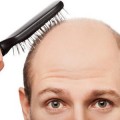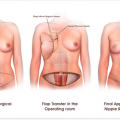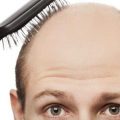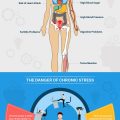In a world where luscious locks and flowing tresses usually equate to beauty and confidence, the societal importance placed on having healthy, voluminous hair cannot be overstated. People view their hair not just as a mere accessory but as a symbol of their identity and self-expression.
However, many individuals grapple with the distressing issue of hair loss. Approximately 50% of men and 40% of women experience some form of hair loss by age 50. These numbers underscore the widespread nature of this challenge, meaning it’s vital to understand its overall impact on a person’s well-being.
Beyond the physical aspects, hair loss can trigger a complex mix of emotions and psychological consequences. This article highlights the emotional impact of hair loss and valuable coping strategies.
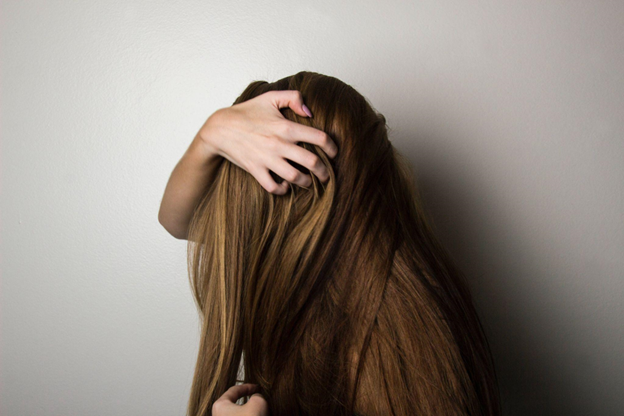
What Constitutes Hair Loss?
Hair loss, or alopecia, refers to a decrease in the amount or quality of hair on the scalp or body. It can manifest as thinning, bald patches, or complete loss. While some hair shedding–around 50 to 100 strands a day–is normal, any more can indicate a more severe condition.
Common causes of hair loss
Understanding its potential causes is crucial for determining the most effective methods for managing hair fall. Your options will vary depending on the root issue. Here are some of the most common causes of alopecia:
1. Androgenetic alopecia
This condition, often known as male or female pattern hair loss, is hereditary and related to hormones. It’s the most common cause of hair loss worldwide.
2. Alopecia areata
Alopecia areata is an autoimmune condition in which your body’s immune system attacks hair follicles. This condition leads to sudden, patchy hair loss, leaving bald patches in seemingly random spots.
3. Telogen effluvium
Telogen effluvium is hair loss triggered by stress, illness, or significant weight loss. Thankfully, once you remove or adjust to the stressor, your body should stop excessive shedding and eventually return to its original state.
4. Nutritional deficiencies
A lack of nutrients like iron, protein, biotin, and zinc can lead to hair loss. Once your body gets enough of the missing nutrients, hair can regrow, as this form of hair loss does not leave scars.
5. Medical conditions
Several medical conditions can affect your hormones, such as thyroid disorders and polycystic ovary syndrome (PCOS), which can cause hair loss. Treating these medical conditions can help rejuvenate your hair.
6. Medications
Some drugs, most notably chemotherapy agents, can lead to hair loss as a side effect. However, consulting your doctor before you stop taking the medication is vital for your health and ongoing treatment.
7. Hairstyling and heat damage
Excessive use of hot tools and hairstyles that pull on strands tightly can weaken and damage hair cuticles. Integrating hair and scalp treatments into your routine can help repair your strands and bring back their lustrous shine.
8. Trichotillomania
Some people have developed impulses to pull on their hair to relieve stress. They may do this act unconsciously and, over long periods or with enough force, pull strands by the roots.
Psychological Effects of Hair Loss
Hair loss, whether gradual or sudden, often triggers a cascade of emotional responses. They might grapple with anger, feeling robbed of control over their bodies. Embarrassment can also be overwhelming, as individuals may feel exposed and vulnerable. Anxiety often follows, fueled by worries about how others might perceive them.
Extreme hair loss can cause low self-esteem as hair is closely related to self-identity. Body image issues can arise as a result of this low self-esteem, making people feel less attractive and leading to social withdrawal, where one would avoid social activities to avoid judgment. These emotional reactions lead to a decline in confidence, affecting many aspects of life.
Recognizing and addressing these psychological consequences is essential. They can become a significant barrier to personal growth and happiness. The following sections discuss ways to cope with these emotional challenges and boost confidence, helping you regain control and find a path to self-acceptance.
How to Deal with Hair Loss
Dealing with hair loss is a challenging journey, but effective ways to navigate your emotions exist. Here are five strategies to help you cope with the psychological impact of hair loss and regain your confidence.
1. Explore hair restoration treatments
Start by researching the root cause of your hair loss to see if solutions can help you regrow your hair. There are also various hair restoration options, ranging from topical treatments to hair transplant surgeries.
Consult with medical professionals specializing in hair loss to determine the most suitable solution for your unique situation. Knowledge is empowerment; understanding your options is an excellent first step toward feeling in control.
2. Seek support and build a network
Don’t underestimate the strength that comes from connecting with loved ones and individuals who’ve also experienced hair loss. You can also consider joining support groups and online communities that share practical tips, questions, experiences, and triumphs.
Building a support network can provide emotional solace and a sense of belonging during your experience.
3. Engage in stress-reducing activities
A balanced diet, regular exercise, and stress-reducing activities like yoga and meditation can work wonders for your mental health. Being healthy puts you in a positive mindset for managing hair loss.
A healthy lifestyle fosters not only physical well-being but also emotional resilience, helping you cope with the challenges more effectively.
4. Practice self-compassion and adopt a positive mindset
Challenge negative self-talk and self-criticism by practicing self-compassion. Focus on your inner qualities, achievements, and unique aspects that make you who you are beyond physical appearance. Also, consider all the attractive traits that didn’t disappear when you lost your hair.
While it cannot change your physical look, a positive mindset can boost your confidence and help you become more self-assured. Having a sense of humor can also go a long way in helping you laugh through your difficulties. Find humor that uplifts.
5. Seek professional help
If the emotional impact of hair loss ever becomes overwhelming, prioritize your mental well-being by seeking professional assistance. Therapists and counselors can provide expert assistance and invaluable guidance tailored to your needs.
There’s strength in seeking help, and it can be a transformative step towards regaining your emotional equilibrium.
Confidence Beyond Hair
In the end, building confidence beyond your hair will make you a more resilient and self-loving person. The strands atop your head do not define your worth. Instead, you can feel better by the self-acceptance and strength you find within.
Embrace your unique experiences and let your inner radiance shine. That is the source of enduring confidence.



 (3 votes, average: 3.67 out of 5)
(3 votes, average: 3.67 out of 5)






